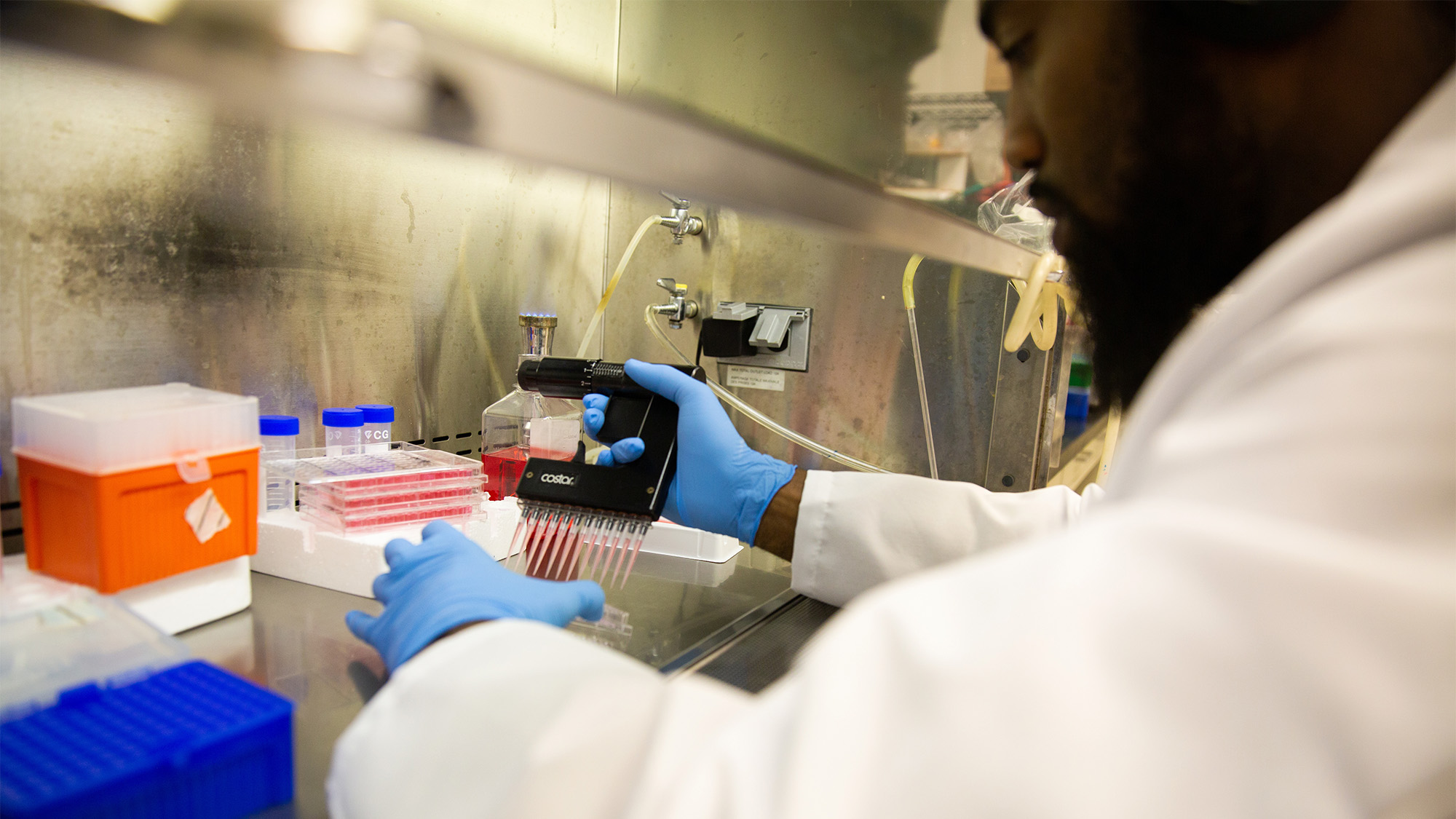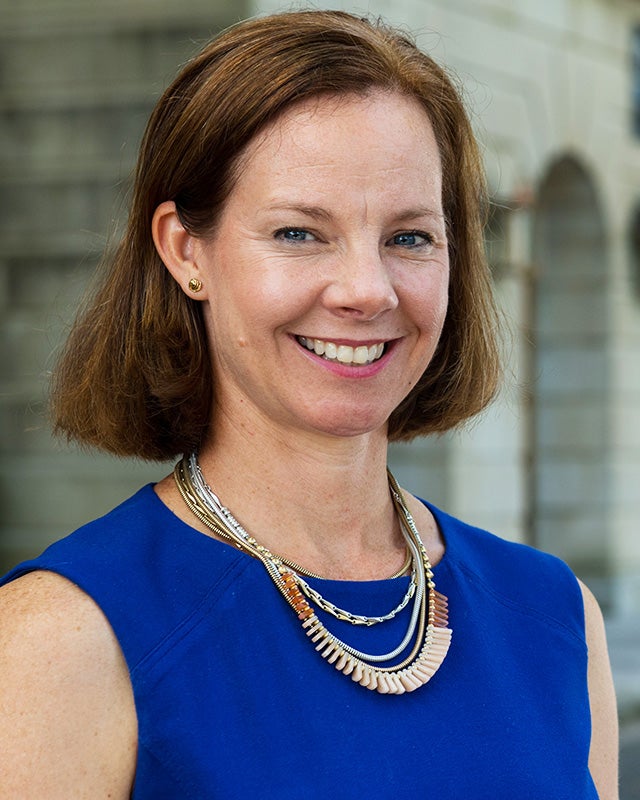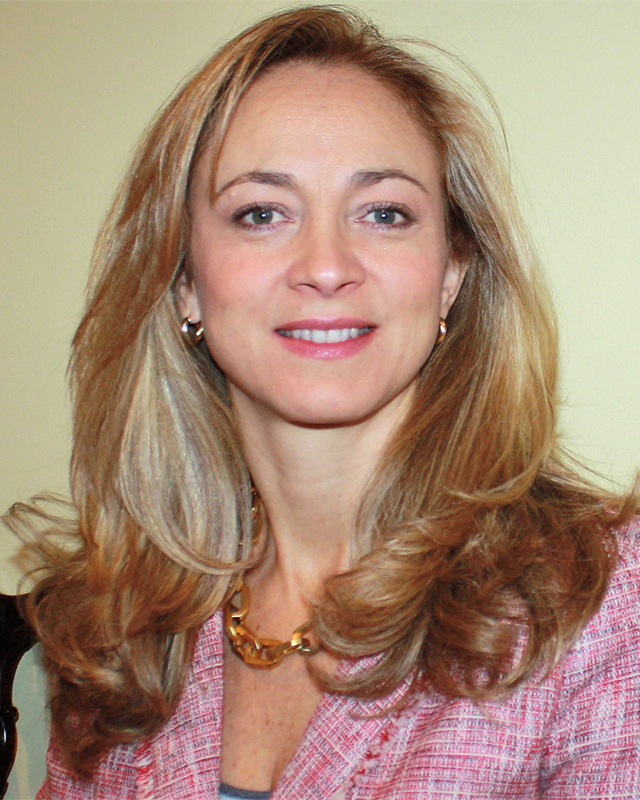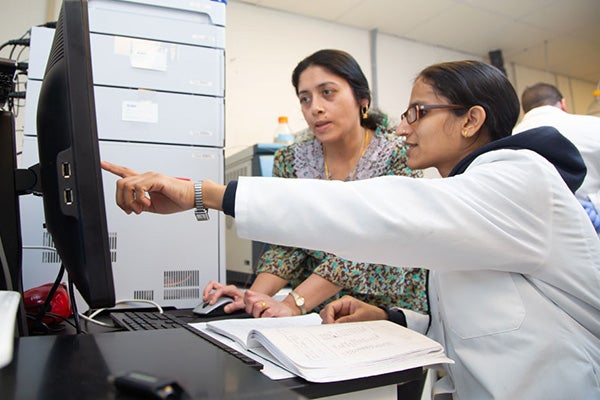New Georgetown Lombardi Office Cultivates Diversity, Equity and Inclusion at the Cancer Center

Posted in Lombardi Stories | Tagged Diversity and Inclusion, equity, health disparities, underrepresented populations in research
(February 23, 2024) — Researchers have made significant advances in cancer prevention, screening, diagnosis and treatment over the last several decades, yet persistent cancer health disparities disproportionately impact populations who have been historically underrepresented in science and medicine.
A critical aspect necessary for changing that paradigm requires diversity in cancer research and education. And to achieve diversity requires cultivating an inclusive environment at work.

That is the goal of the new Office of Diversity, Equity and Inclusion (DEI) at Georgetown University’s Lombardi Comprehensive Cancer Center. Led by Kristi Graves, PhD, associate director for diversity, equity and inclusion, the initiative launched in January 2024 to improve diversity and foster a sense of inclusion among cancer research trainees, staff, faculty and leadership.
About 3% of medical oncologists are Black or African American, and 4.7% are Hispanic or Latino compared to 13% and 18% of the US population respectively, according to the American Society of Clinical Oncology. Similar trends are seen among cancer researchers. The National Institutes of Health reported that only 7% of applicants for R01 grants were part of a group that is underrepresented in medicine.
“Underrepresentation affects our ability to produce research and provide clinical care that is relevant and responsive to patients’ needs,” said Graves, who also serves as associate professor of oncology and associate dean for faculty development for Georgetown University Medical Center. “Supporting diversity, equity and inclusion is essential to the work at Lombardi so that we can increase representation of scientists and clinicians in oncology.”
In collaboration with Georgetown Lombardi’s leadership and research programs, Lombardi’s DEI office will work alongside colleagues across the consortium with John Theurer Cancer Center and the university’s academic health system partner, MedStar Health, to promote a culture of belonging and inclusion.
The Georgetown Lombardi DEI office also offers funding opportunities for students, trainees, staff, and faculty engaged in cancer research. The funding will support student stipends, staff development, faculty leadership coaching, faculty booster funding, scientific editing and more.
“We’re trying to provide opportunities and training across all of the programs,” Graves said. “As we build out our office and provide opportunities and funding, we want to make sure everyone across the consortium is aware so they can take advantage.”
Building a Team

As a researcher and faculty member focused on fostering diversity and inclusion, Graves brings a wealth of experience to her role. “In my research role, I hope that my community-based work has taught me how to approach people in a listening, humble way,” Graves said. “I’m trying to apply those principles in this setting, working with different people and stakeholders to understand and address their needs.”
Graves also serves on the Georgetown University Gender+ Justice Initiative, giving her insight on relevant activities going on across the university. “We’re trying to make sure that we’re not duplicating efforts and that things are connected and not siloed,” she said.
Larisa Caicedo, MA, DEI senior manager, joined the team in September 2023. She previously led Nueva Vida, an organization that supports Latino families affected by cancer in the Washington area.
Like Graves, Caicedo looks forward to implementing the DEI office’s plans and getting colleagues involved. “Everyone will be able to participate when they learn about the work we are doing at the DEI office and when we start showing results,” she said.
Enhancing Diversity
To understand the current diversity landscape at Georgetown Lombardi, the DEI office’s first aim is to collect and evaluate diversity metrics and improve the infrastructure needed to recruit and retain trainees and faculty from groups historically underrepresented in science and cancer research.
To that end, Graves and Caicedo, with involvement from Lauren Massie (H’24), an intern in the DEI office, are working with Georgetown’s Office of Assessment and Decision Support to launch a brief diversity engagement survey. “We hope that the survey data will provide a useful baseline for some of our efforts,” she said. “The plan is to administer it every couple of years.”

Supporting trainees and early career researchers is another aim for the office, which has established an early career leadership council to identify what they need to succeed. The council will have a retreat this spring to build connections and share ideas, Graves said.
Promoting leadership development opportunities for women and individuals underrepresented in cancer research leadership is the DEI office’s third aim. In addition to supporting future leaders with coaching and mentoring, the office will also train current Georgetown Lombardi leaders about inclusive leadership. Graves looks forward to working with the Cancer Research Training and Education Coordination office to offer training in inclusive mentoring and best practices in mentoring individuals from different backgrounds.
“We’ve just completed the review of our first round of funding applications and are excited for next steps with the DEI Engagement Survey, working with the Early Career Leadership Council and seeking guidance from our DEI Advisory Council,” Graves said. “We’re on the cusp of many activities.”
“Our new Lombardi DEI Office website describes different resources, upcoming events, funding opportunities and more,” Graves added. “We are excited to work with trainees, staff and faculty across Lombardi and in the broader community to reach our goals.”
Kat Zambon
GUMC Communications
